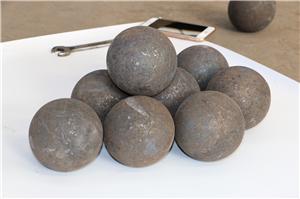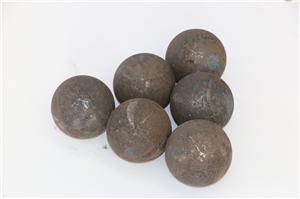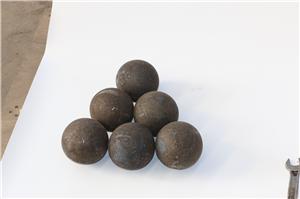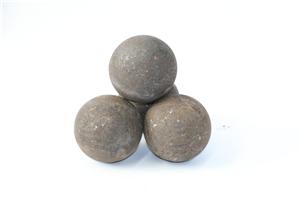About the quality of ball mill steel ball
The quality of the ball of the ball mill not only affects the productivity, but also affects the level of ball consumption, which affects the cost of the grinding medium. It is wrong to simply pursue
high hardness and low single consumption. High hardness and low unit consumption do not equal low cost, high hardness and low unit consumption of the ball is often very high price. High
hardness does not necessarily increase productivity, or even decrease, only high productivity can make the individual consumption indicators decline. Therefore, the primary criterion for
selecting steel balls should be the high productivity of the mill and the low cost of the grinding medium. Only high productivity and low grinding medium cost can have good economic benefits
. Economic benefit is a necessary condition for the survival and development of enterprises.
When choosing a steel ball, there are two problems that are often overlooked: the steel ball is not the harder the better, but has the right hardness value; The density of steel balls is also a
problem that cannot be ignored. On the influence of hardness, generally speaking, with the increase of hardness, as long as there is no crushing, the single consumption of steel balls
decreases; Moreover, the ball deformation can be small, the ball deformation is small in the crushing, and the energy can be more used to break the ore particles, which can increase the
productivity of the mill. However, the increase in the hardness of the steel ball can only be moderate, there is an appropriate range, not the harder the better. If only the ball consumption is
considered, the higher the hardness, the lower the consumption. However, for the mill productivity, the productivity increases with the increase of steel ball hardness within a certain range,
but when the hardness exceeds a certain range, it has an adverse effect on the mill productivity, so that the mill productivity decreases. There are two reasons why the hardness of the steel
ball is too high for grinding:
1.The steel ball bounces back seriously, causing some energy loss in the rebound, so the energy of the steel ball is not used more for crushing, so it affects the crushing;
2.When the hardness of the steel ball is too high, the ball slides badly when it is in contact with each other, and the ore particles between the balls can not be effectively eaten by Kilbo, so
that the grinding effect of the ore particles is weakened.
As for the influence of ball density on grinding, generally speaking, balls of the same size have high density and high productivity, and low density and low productivity.
The density of steel balls is affected by three factors:
1. Material influence, steel, cast iron, alloy steel, etc., the density of different materials is different, the density of steel is larger than that of cast iron, and the alloy steel is different according
to the density and content of the main alloying elements.
2.The influence of the steel ball manufacturing method, rolling and forging of the steel ball its dense organization, so the density is large, cast steel ball, cast iron ball or cast alloy ball and
other organization is not very dense, and even there are pores, so the density is smaller.
3. The influence of the metallographic structure of steel balls, martensite, austenite, bainite, ferrite and other crystal structures under the density is not the same, also has an impact on the
crystallization finenes




